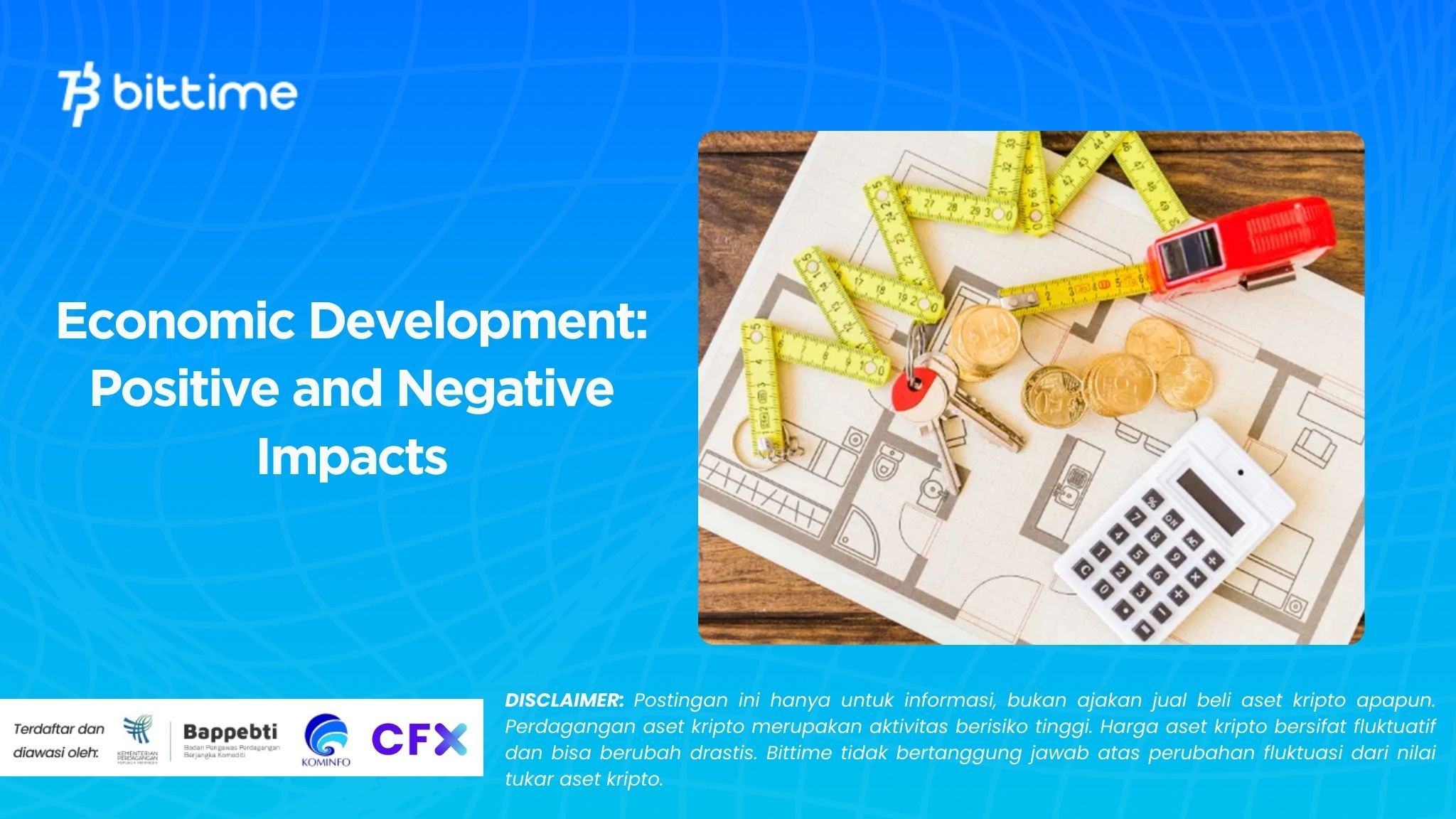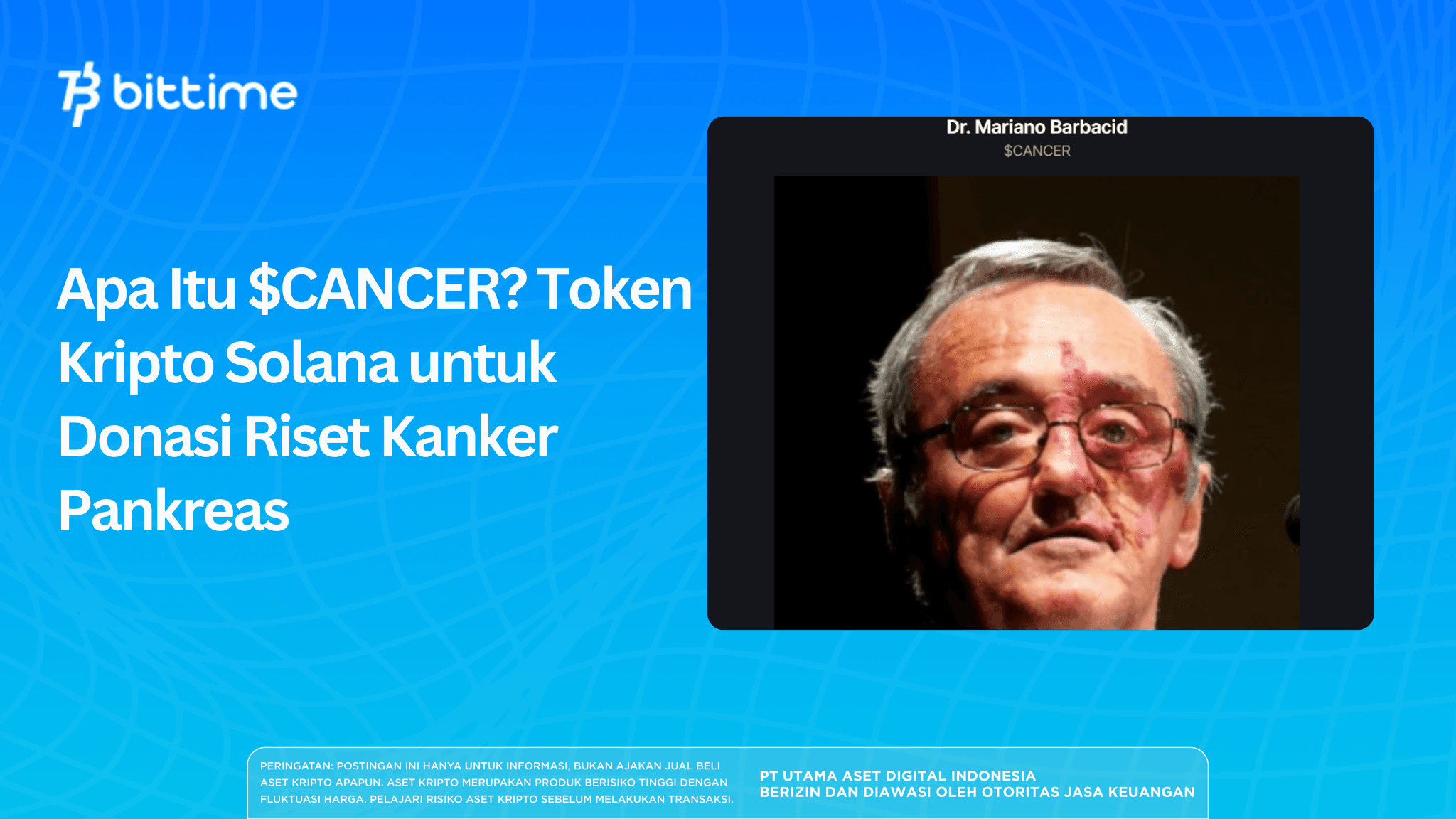Economic Development: Positive and Negative Impacts
2025-03-11
Bittime - Economic development is a key factor in the progress of a country. This process is characterized by increased production and consumption which drives economic growth. However, the impact is not always positive. Apart from creating prosperity, innovation and jobs, economic development can also exacerbate social inequality and lead to over-exploitation of natural resources.
This article will comprehensively discuss the positive and negative impacts of economic development and how to manage them so that they remain sustainable.

Positive Impact of Economic Development
1. Increased Welfare and Living Standards
One of the main benefits of economic development is increasing people's welfare. When the economy grows, per capita income increases, which means people have higher purchasing power. This allows wider access to education, health and other basic needs, thereby improving the quality of life.
2. Job Creation
Economic growth encourages investment in various industrial sectors, which ultimately creates more job opportunities. With more jobs available, unemployment rates can be reduced, providing economic stability for individuals and families.
3. Technological Progress and Innovation
Countries that experience economic growth tend to invest more in research and technological development. This triggers innovation that can increase production efficiency, reduce costs, and create new solutions in various fields, including health, transportation, and communications.
4. Infrastructure Development
The government has more resources to build and improve infrastructure, such as roads, bridges, public transportation and other public facilities. Good infrastructure supports the smooth running of economic activities, increases productivity, and accelerates the distribution of goods and services.
5. Increased Investment and Global Competitiveness
Economic development attracts more investors, both from within the country and abroad. Increased investment helps strengthen local industry and expand business opportunities, so that the country can be more competitive in global trade.
Also read: RedStone Crypto: Everything You Need to Know
Negative Impact of Economic Development
1. Social and Economic Inequality
Even though the economy is growing, not all groups of society benefit equally. Income inequality often increases, with certain groups making large gains, while other groups remain in poverty. This can exacerbate social inequalities and trigger economic conflict.
2. Exploitation of Natural Resources
Rapid economic growth often comes at the expense of the environment. Deforestation, excessive mining and exploitation of other resources can cause deforestation, water pollution and degradation of soil quality. If not managed well, this environmental damage can have long-term impacts.
3. Pollution and Climate Change
Rapidly growing industries often produce large amounts of waste. Air, water and land pollution is increasing, which can damage public health. Additionally, the use of fossil fuels in production and transportation contributes to global climate change.
4. Uncontrolled Urbanization
Rapid economic development often leads to massive urbanization. Cities are becoming congested, slums are increasing, and the cost of living in cities is becoming increasingly expensive. If not balanced with good planning, urbanization can create social problems, such as increased crime and traffic jams.
5. Dependence on Certain Sectors
Some countries that experience high economic growth tend to depend on certain sectors, such as mining or manufacturing. When the sector experiences a crisis, the entire economy can be shaken. Economic diversification is essential to reduce these risks.
Also read: Crypto Trading Laws in Islam, Halal or Haram?
Conclusion
Economic development brings many benefits, ranging from increasing welfare, creating jobs, to technological progress. However, the negative impacts cannot be ignored, especially regarding social inequality and environmental damage. Therefore, a sustainable development strategy is very necessary so that economic benefits remain optimal without sacrificing resources for future generations.
FAQ
1. How to reduce the negative impacts of economic development?
The government and private sector can implement environmentally friendly policies, increase investment in renewable energy, and encourage a fairer distribution of wealth through taxation and social welfare policies.
2. Does economic development always improve people's welfare?
Not always. If not managed well, economic growth can cause social inequality and exploitation of resources that harm certain groups in society.
3. What is meant by sustainable economic development?
Sustainable economic development is economic growth that takes into account the balance between economic, social and environmental aspects, so that the benefits can be felt in the long term without destroying natural resources.
How to Buy Crypto on Bittime
Want to trade sell buy Bitcoins and crypto investment easily? Bittime is here to help! As an Indonesian crypto exchange officially registered with CoFTRA, Bittime ensures every transaction is safe and fast.
Start with registration and identity verification, then make a minimum deposit of IDR 10,000. After that, you can immediately buy your favorite digital assets!
Cek rate BTC to IDR, ETH to IDR, SOL to IDR and other crypto assets to find out today's crypto market trends in real-time on Bittime.
Additionally, visit Bittime Blog to get various interesting updates and educational information about the world of crypto. Find trusted articles about Web3, blockchain technology, and digital asset investment tips designed to enrich your knowledge in the world of crypto.
Reference
Finance Spiders, The Positive and Negative Impacts of Economic Growth, accessed March 11, 2025.
Author: MF
Disclaimer: The views expressed belong exclusively to the author and do not reflect the views of this platform. This platform and its affiliates disclaim any responsibility for the accuracy or suitability of the information provided. It is for informational purposes only and not intended as financial or investment advice.



